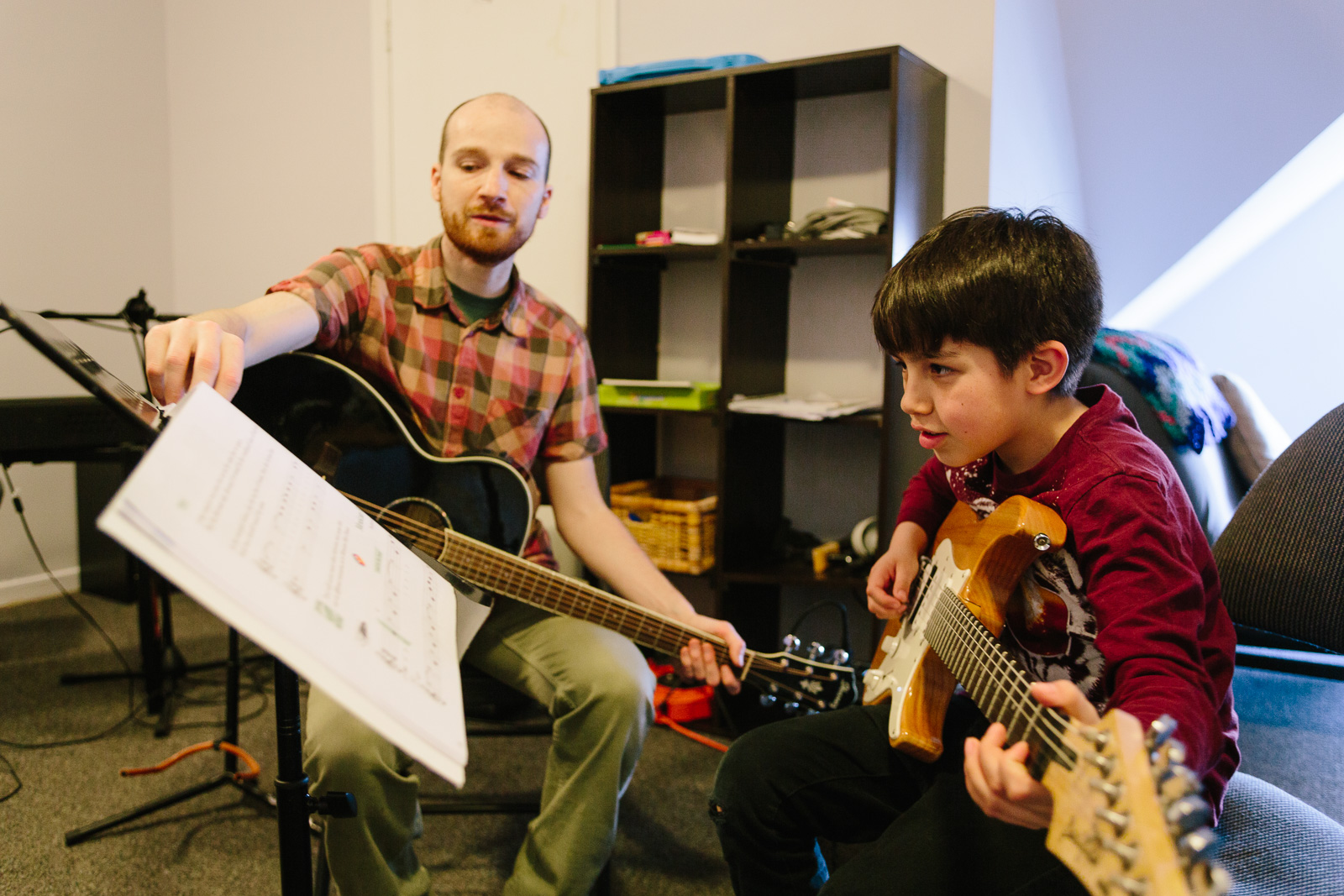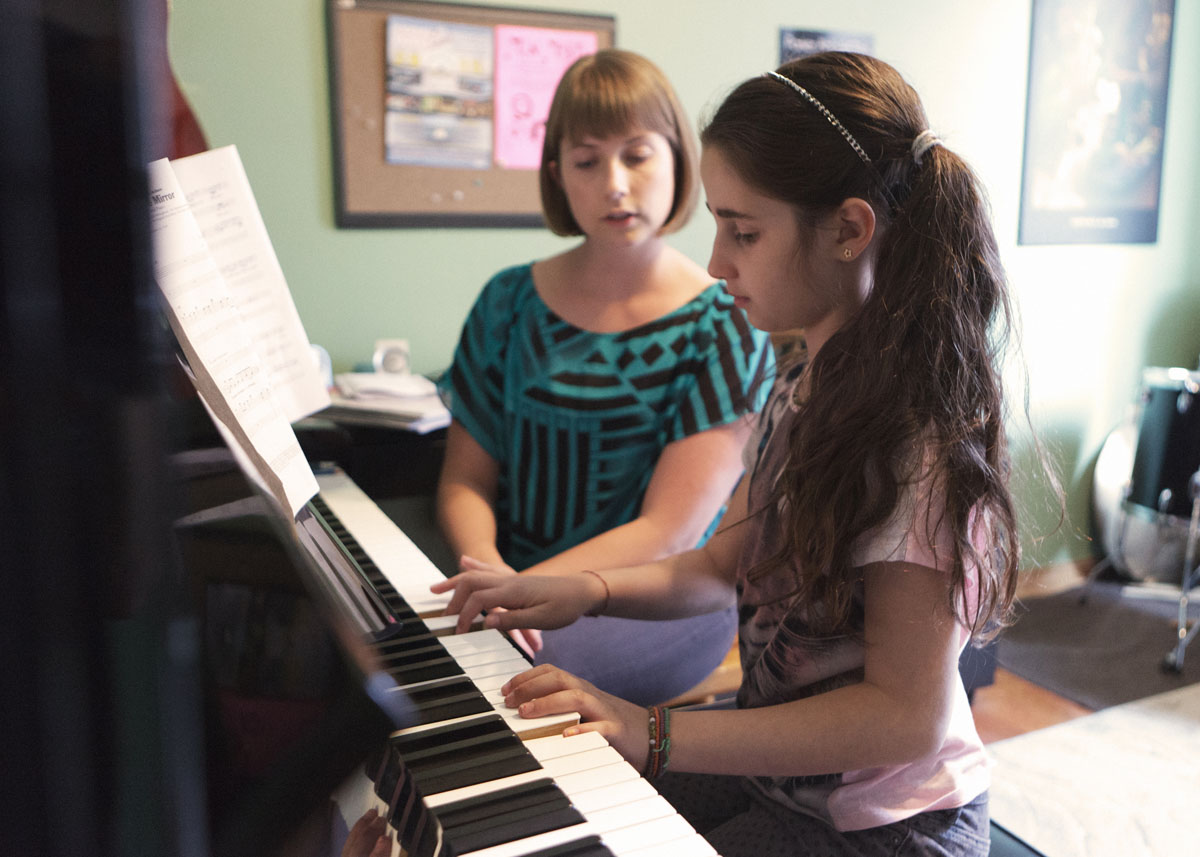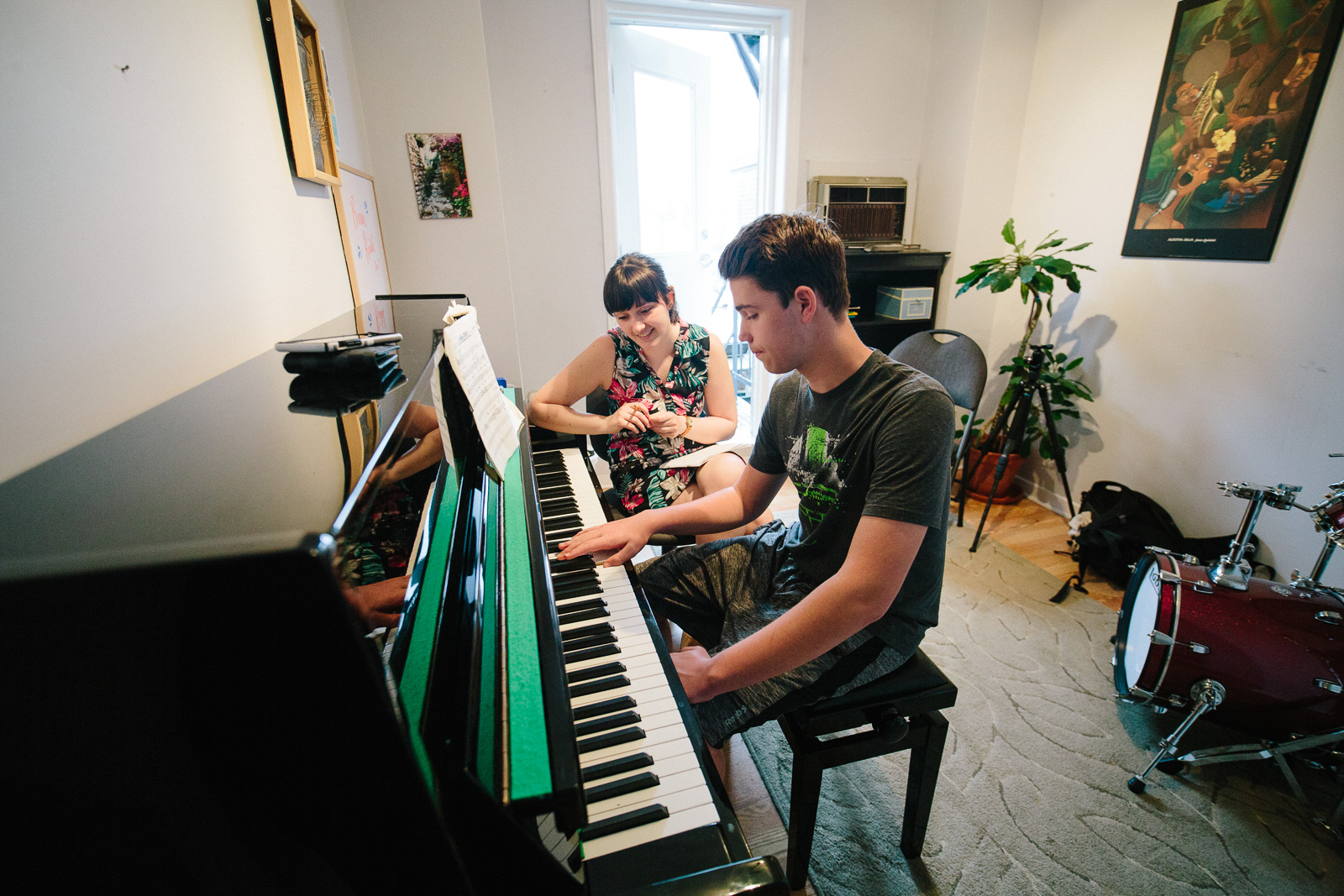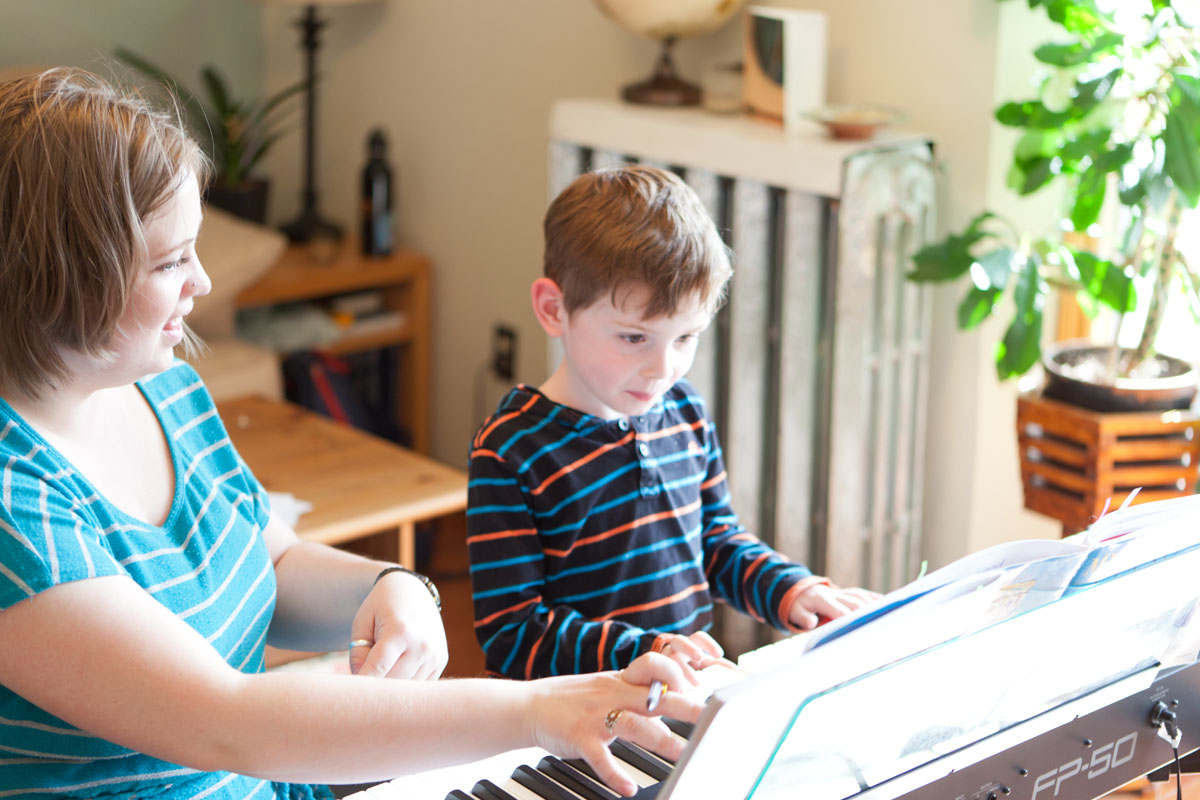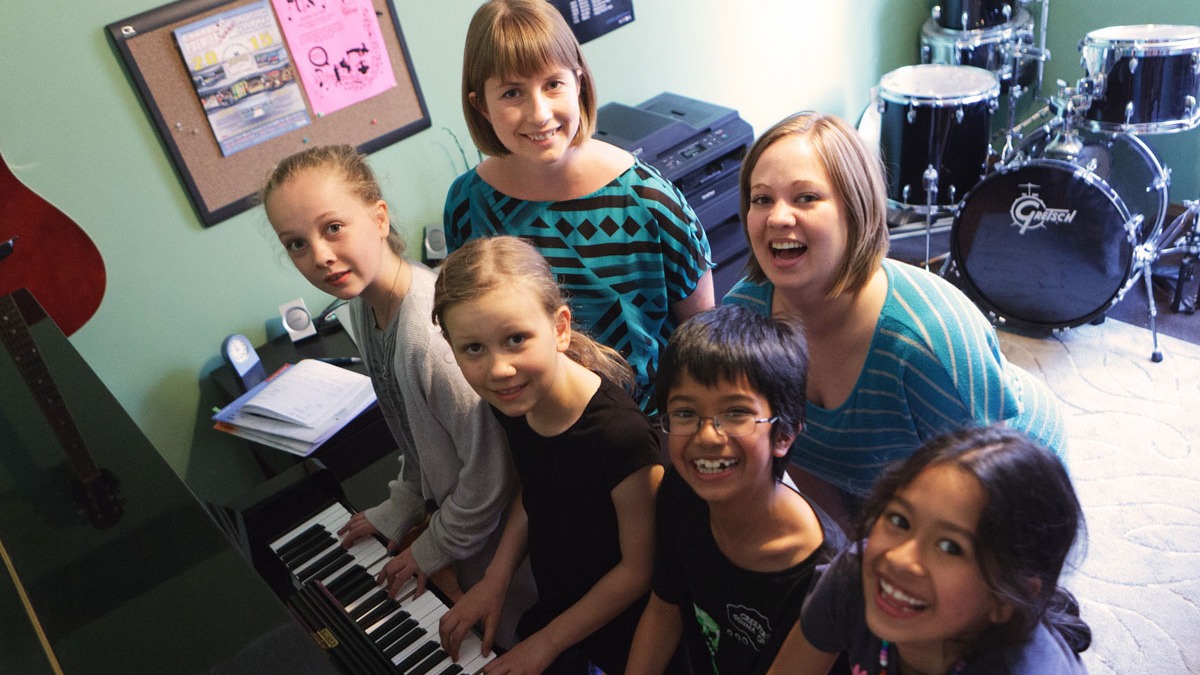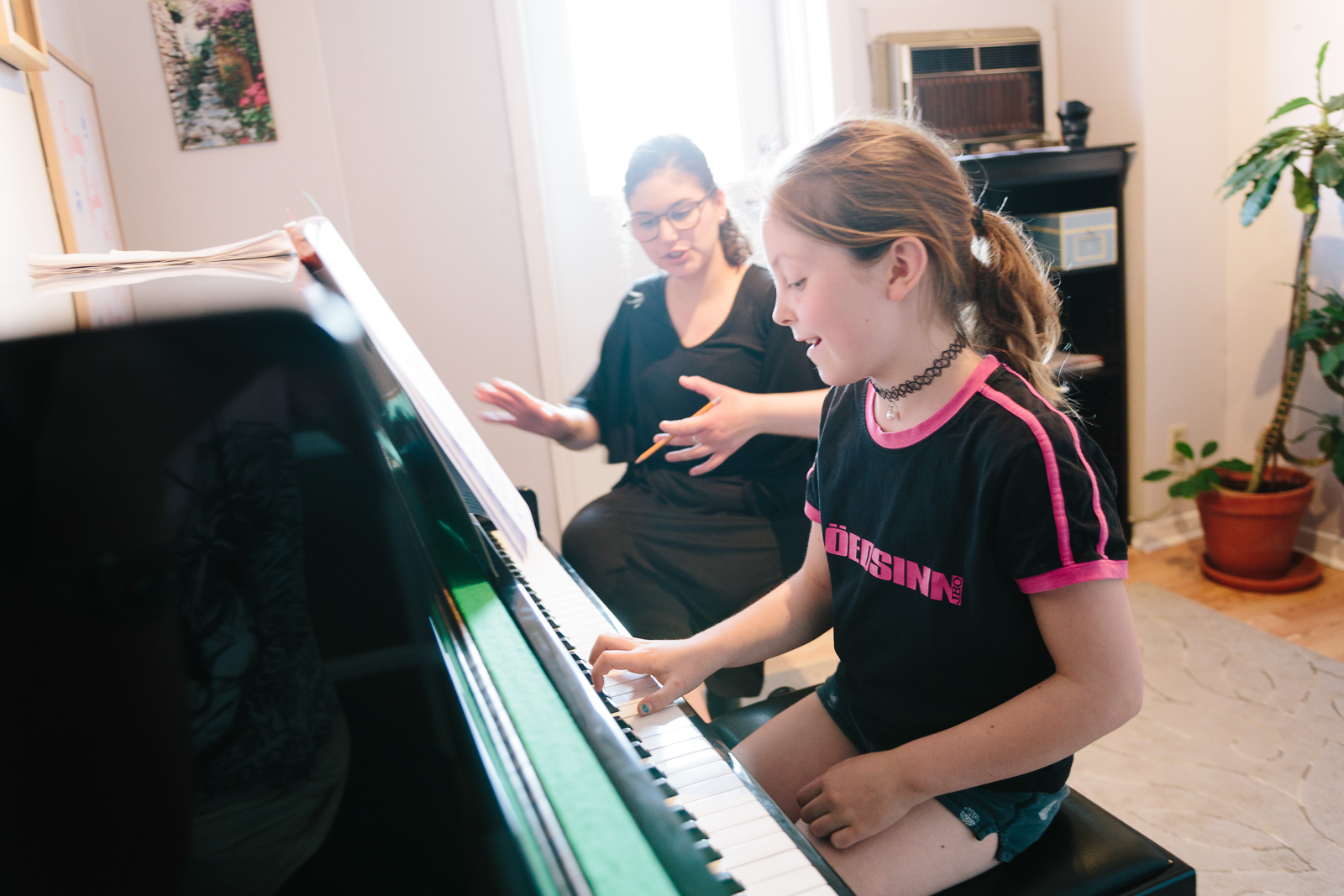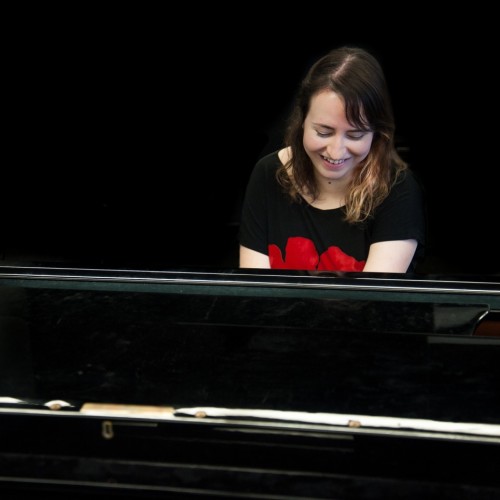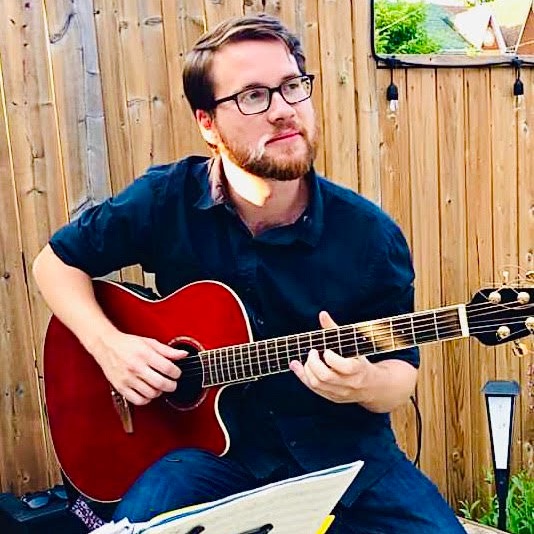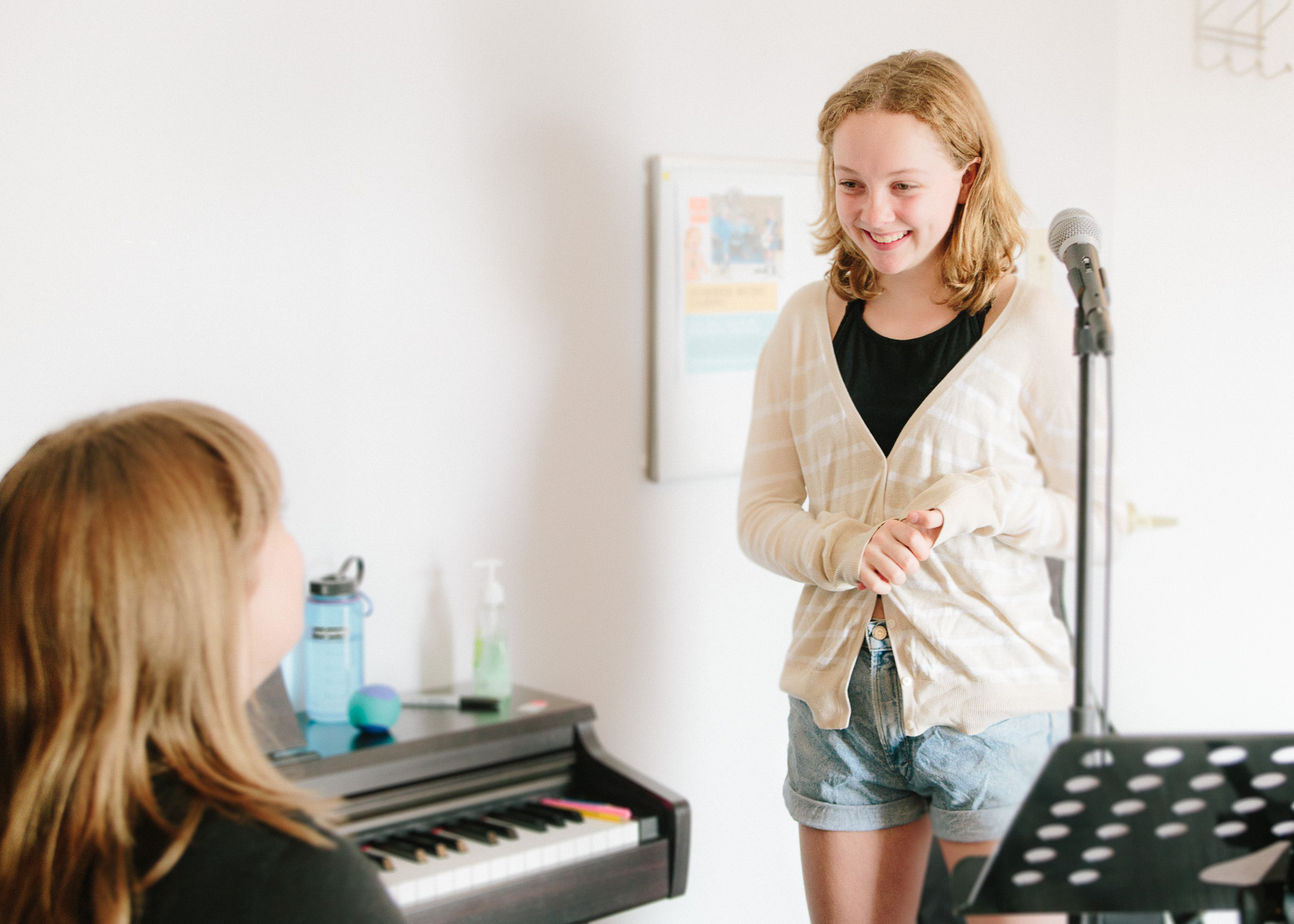Welcome to the Annex Academy of Music!
The Annex Academy of Music is a community music studio located at 519 Bloor Street West, near Bathurst and Bloor in downtown Toronto. Our expert teachers give lessons in piano, guitar, voice, bass, drums, saxophone, trumpet, violin, and theory for students of all ages. We take pride in being the most fun, most engaging music school in town. Please check out our site and get in touch to learn more about how we can get you or your child playing today.
Our philosophy
We believe that making music is a natural part of life that every child and adult can find joy in. The comfortable atmosphere of our studio allows us to make a personal connection with each student so that we can tap into his or her interests and needs.
Annex Academy of Music provides a balance of contemporary and classical teaching methods to foster creativity and well rounded musicianship in students of all ages. Our music lesson programs are tailored to the unique needs and interests of each student: your goals are our goals. Students are encouraged to engage in the rich musical life of our studio and the city around us to participate in ensembles, festivals and performances.
Our highest aim is to help each student experience the beauty around them, unlock their creative potential, and discover the joy of their own learning process -- the ultimate reason that learning music is so universally important.
Come check out our studio!
We're in the Bathurst and Bloor area of Toronto, just a 3-minute walk from Bathurst subway station. And we love visitors.
Meet our super awesome teachers
We have amazing teachers who keep things fun and interesting. Each of our teachers has a music degree and many years experience in music education.
Marshall Jacklin
Piano, Guitar & VoiceLiz Anthonisen
Andrew Furlong
Bass, Guitar, Drums & PianoBennett Rouleau
Guitar, Piano, Saxophone, ViolinKathleen O’Keeffe
Voice & PianoGrace Francis
PianoAdam Mansfield
DrumsDuncan Wilson
Alyssa Giammaria
Voice & PianoJennifer Pos
Piano, Voice & TrumpetMelanie Pos
Voice & PianoPeter Woodward
Robert Chapman
GuitarShourya Jain
Voice & PianoTeri Parker
PianoLessons
We'll get you playing right away! Private music lessons, one-on-one with the teacher, provide lots of individual attention to help set and achieve goals that matter to you. Lessons are weekly and 30, 45 or 60 minutes long, depending the student’s age and experience level. Scheduling is simple – once we find the best weekly timeslot for you it is yours every week.
Steady timeslots
Once we find a time for you, it's yours. You will never be double booked.
It's all about you
Our private lessons are uniquely tailored to each student's skill, musical taste, and aptitude. We teach classical, jazz, pop, and contemporary styles to students of all ages.
Multiple instruments
We teach piano, guitar, bass, ukulele, drums, and vocals in several styles, to students of all ages and skill levels.
The extra mile
It's not enough to just take your lessons and practice at home. You've got a musical life to live! We offer plenty of opportunities for students to enrich their musical lives, flex their creative muscles, and put their new skills into practice!



Concerts & Competitions
Get out there and strut your stuff! We encourage our students to develop self-confidence and performance skills by providing the opportunity to play at concerts, festivals, competitions and examinations. These experiences are not a requirement, but a great opportunity for an enhanced learning experience. Funfest, Kiwanis, casual recitals and concerts are just a few of the performance opportunities we provide our students.
Bands & Ensembles
Ever wanted to play in a group? We offer ensemble opportunities for all instruments, from duets to larger bands, and performance opportunities, too. We've also got a glee club and a rock band! Contact us for more information.
Examinations
We have successfully prepared many students for Royal Conservatory of Music, Conservatory Canada or Ontario Music Teacher's Guild exams. Examinations are an excellent motivator as they provide a clear goal to aspire to and concrete feedback on the result of the student’s effort. The great sense of accomplishment a student feels after completing an exam is another reason to consider taking one. Exams for higher grades can also be counted towards high school credit.
Summer Camp
Every summer the Annex Academy runs a Glee camp and Rock Band camp for kids ages 7-13!
Led by two of our amazing teachers, students get the opportunity to learn from professional musicians in a group setting. Music camp runs the second and third weeks of July each summer and finishes with a performance at the end of each week. If you’re looking to develop your musical skills further and have fun playing in a band these camps are for you!
Please contact us for more information and to register for the program!
Resources
Here are some things we think you might find helpful. Click on the names to get to the links.
Good Ear
An online ear training website for working on intervals, chords, scales and more!
Music Theory
A website with interactive trainers for theory and ear training. Really a great resource.
Music Notes
Want to learn your favourite new song? Go to this website and download sheet music for thousands of songs. Costs about $4.50/song.
Metronome
Has your teacher been telling you to work on your time? Go to this website to use their free online metronome.
Amazing Slow Downer
Have you ever heard a song or riff that you'd like to learn but it just going by to fast? Use this program to slow music down to 20% of it's original speed.
Ear Training Podcast
For more advanced jazz students, this is a great podcast by drummer Danny Wolf to help students work on intervals, chords, scales and more.
Spotify
The world's largest on-demand music streaming and discovery service. Over 30 million users flock to Spotify to listen to their favorite music, create playlists, discover new tunes, and share it all with friends via Facebook, Twitter, social news sites, and more.
Petruccci Music Library
Free sheet music and recordings by the thousands: all in the public domain.
Pro Guitar Tuner
Need to tune your guitar? Check out this site!
Frequently Asked Questions
We get asked these questions a lot. If you don't find the answer you're looking for, never hesitate to contact us directly by email or phone. We love hearing from you.
Why is it important to take music lessons?
Here are a 10 great reasons:
- In a 2000 survey, 73 percent of respondents agree that teens who play an instrument are less likely to have discipline problems.
(American Music Conference, 2000.) - Students who can perform complex rhythms can also make faster and more precise corrections in many academic and physical situations, according to the Center for Timing, Coordination, and Motor Skills
.
- Rhythm seen as key to music’s evolutionary role in human intellectual development, Center for Timing, Coordination, and Motor Skills, 2000 - A ten-year study indicates that students who study music achieve higher test scores, regardless of socioeconomic background.
- Dr. James Catterall, UCLA - A 1997 study of elementary students in an arts-based program concluded that students’ math test scores rose as their time in arts education classes increased.
- “Arts Exposure and Class Performance,” Phi Delta Kappan, October, 1998 - First-grade students who had daily music instruction scored higher on creativity tests than a control group without music instruction.
- K.L. Wolff, The Effects of General Music Education on the Academic Achievement, Perceptual-Motor Development, Creative Thinking, and School Attendance of First-Grade Children, 1992 - In a Scottish study, one group of elementary students received musical training, while another other group received an equal amount of discussion skills training. After six (6) months, the students in the music group achieved a significant increase in reading test scores, while the reading test scores of the discussion skills group did not change.
- Sheila Douglas and Peter Willatts, Journal of Research in Reading, 1994 - According to a 1991 study, students in schools with arts-focused curriculum reported significantly more positive perceptions about their academic abilities than students in a comparison group.
- Pamela Aschbacher and Joan Herman, The Humanitas Program Evaluation, 1991 - Students who are rhythmically skilled also tend to better plan, sequence, and coordinate actions in their daily lives.
- “Cassily Column,” TCAMS Professional Resource Center, 2000 - In a 1999 Columbia University study, students in the arts are found to be more cooperative with teachers and peers, more self-confident, and better able to express their ideas. These benefits exist across socioeconomic levels.
- The Arts Education Partnership, 1999 - College admissions officers continue to cite participation in music as an important factor in making admissions decisions. They claim that music participation demonstrates time management, creativity, expression, and open-mindedness.
- Carl Hartman, “Arts May Improve Students’ Grades,” The Associated Press, October, 1999


